#saint Isaac of syria
Text

11 notes
·
View notes
Text

Saint Isaac the Syrian
c. 613 - c. 700
Feast Day: January 28
Saint Isaac of Syria, also known as Isaac of Nineveh entered a monastery at a young age and received an excellent education. He then taught theology while emphasizing God’s love, mercy, and the works of the Holy Spirit. St. Isaac was installed as the Bishop of Ninevah but left after 5 months to live a life of solitude, poverty, contemplation, and total surrender to God. His writings are still treasured today for their spiritual insights.
Prints, plaques & holy cards available for purchase here: (website)
#saintisaacthesyrian#Portraitsofsaints#Feastday#Saintoftheday#saintportrait#Catholicsaint#catholicillustrator#saintart#Catholicart
33 notes
·
View notes
Photo

"What Christianity most has to offer the world now is not moral guidance or activism or yet another social program; it is a mystical connection to the Source of life. Cultivating that divine-human love affair seems to me the only hope left. Not as some kind of opiate-of-the-people escape from our problems, but as a nonlinear path that leads us deeper into them. Christianity has no exclusive claim on this relationship. It does have a two-thousand-year-old history full of reliable matchmakers: the Desert Fathers and Mothers, Isaac of Syria, Teresa of Avila, Howard Thurman, Simone Weil, Oscar Romero, Thomas Merton . . . the list is long. We can choose our guides. The inner journey into love is taken not for the self, but on behalf of all life.
"The purpose of the early desert hermits", Merton wrote, "was to withdraw into the healing silence of the wilderness . . . not in order to preach to others but to heal in themselves the wounds of the entire world"
From seventh-century Ninevah, in what is now Iraq, Saint Isaac of Syria wrote: "An elder was once asked, "What is a compassionate heart?" He replied: "It is a heart on fire for the whole of creation, for humanity, for the birds, for the animals, for demons and for all that exists."
Christianity will truly come into its own in the Anthropocene, I believe, when it fully embraces that path to compassion, when it refuses to look away from the ecological Good Friday we are inflicting on the world. Only then will our actions, humbled and chastened, flow from compassion rather than from guilt. This requires a shift in vision, a redirecting of our gaze back to the One who loved the world into being and who sustains its every breath."
~ Fred Bahnson
[Ian Sanders]
#quotes#Christianity#Fred Bahnson#Ian Sanders#Thomas Merton#Desert Fathers and Mothers#mysticism#mystical connection to the Source of Life#words and writing#my favorites#light in the darkness
9 notes
·
View notes
Photo
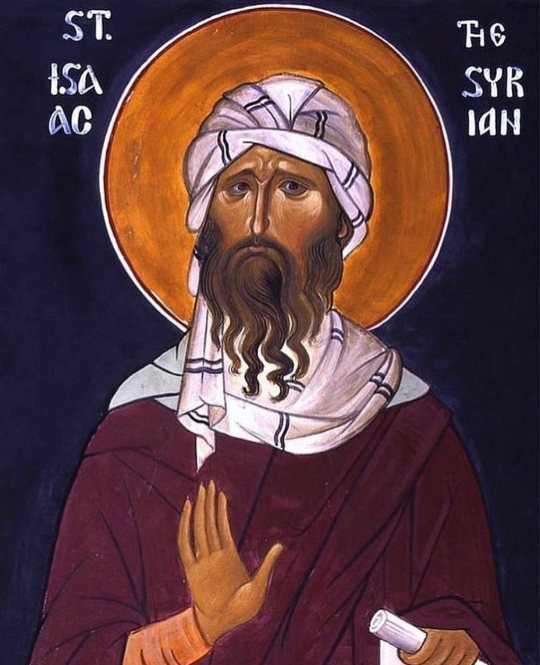
Today we also celebrate the Venerable Isaac the Syrian. Saint Isaac, Bishop of Ninevah, lived during the sixth century. He and his brother entered the monastery of Mar Matthew near Ninevah and received the monastic tonsure. His learning, virtue, and ascetic manner of life attracted the notice of the brethren, and they proposed that he head the monastery. Saint Issac did not want this burden, preferring a life of silence, so he left the monastery to live alone in the desert. His brother urged him more than once to return to the monastery, but he would not agree. However, when the fame of Saint Isaac’s holy life had spread, he was made Bishop of Ninevah. Seeing the crude manners and disobedience of the inhabitants of the city, the saint felt that it was beyond his ability to guide them, and moreover, he yearned for solitude. Once, two Christians came to him, asking him to settle a dispute. One man acknowledged that he owed money to the other, but asked for a short extension. The lender threatened to bring his debtor to court to force him to pay. Saint Isaac, citing the Gospel, asked him to be merciful and give the debtor more time to pay. The man said, “Leave your Gospel out of this!” Saint Isaac replied, “If you will not submit to Lord’s commandments in the Gospel, then what remains for me to do here?” After only five months as bishop, Saint Isaac resigned his office and went into the mountains to live with the hermits. Later, he went to the monastery of Rabban Shabur, where he lived until his death, attaining a high degree of spiritual perfection. From the early eighth century until the beginning of the eighteenth century, nothing was known about Saint Isaac of Syria in Europe except for his name and works. Only in 1719 was a biography of the saint published at Rome, compiled by an anonymous Arab author. In 1896, more information on Saint Isaac came to light. The learned French soteriologist Abbot Chabot published some eighth century works on Syrian history by Iezudena, bishop of Barsa, where the account of Saint Isaac the Syrian was found. May he intercede for us always + Source: https://www.oca.org/saints/lives/2019/01/28/100333-saint-isaac-the-syrian-bis (at Mosul, Iraq) https://www.instagram.com/p/CjEFB6jrc1T/?igshid=NGJjMDIxMWI=
11 notes
·
View notes
Text
Saints&Reading: Tuesday, February 28, 2023
february 28_february 15
THE VENERABLE EUSEBIUS HERMIT OF SYRIA (400)
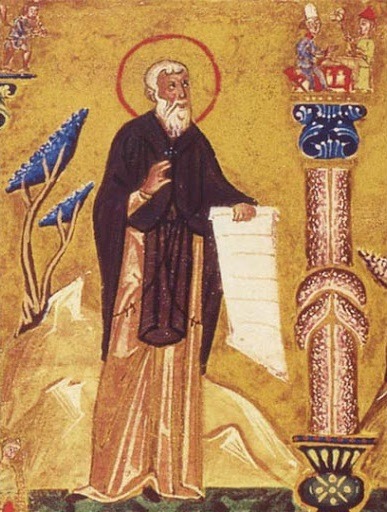
Saint Eusebius the Hermit lived in the fourth century in asceticism on a mountain near the village of Asicha in Syria. He led a very strict life under the open sky, patiently enduring the summer heat and winter cold. He wore skins for clothing and nourished himself on the pods of peas and beans.
Though elderly and infirm, he ate only fifteen figs during the Great Forty-day Fast. When many people began to flock to Saint Eusebius, he went to a nearby monastery, built a small enclosure at the monastery walls, and lived there until his death.
Saint Eusebius died at ninety, sometime after the year 400.
Source: Orthodox Church in America_OCA
ST. DALMATUS, ABBOT, AND FOUNDER OF THE DORMITION MONASTERY IN SIBERIA (1697)

Saint Dalmatius is venerated as a pioneer of the movement that took many ascetics to dwell in the wilderness of Siberia, establishing a new company of Desert Fathers and causing the Russian Far North to be called the 'Northern Thebaid.' He was born in Tobolsk and reared in piety by his family, recently-converted Tatars. When grown, he entered the imperial army as a Cossack and served with such distinction that the Tsar awarded him a noble title. He married and lived in Tobolsk in comfort and prosperity. One day — after the destruction of Tobolsk in a great fire in 1643 — struck by a realization of the vanity of worldly things, he left family, wealth, and property and went to a monastery in the Ural Mountains, taking with him only an icon of the Dormition of the Theotokos.
He was tonsured a monk named Dalmatius and devoted himself to prayer and ascesis with such fervor that, a short time later, the brethren elected him Abbot. Fearing pride and fleeing honor, Dalmatius fled with his icon of the Theotokos to a remote cave, where he lived a life of silence and continual prayer. His presence did not long remain secret in that sparsely-settled region, and soon Christians were coming from far and wide to ask his prayer and counsel; many pagans came to him for holy Baptism. Soon his habitation became too small for those who had chosen to stay as his disciples, and the Saint received a blessing from the Bishop of Tobolsk to build a wooden chapel and some cells. This was the beginning of the great Monastery of the Dormition (also called the Monastery of St Dalmatius).
Over the years, the brethren endured many tribulations. Once, the Tatar Prince of the region, provoked by false rumors, planned to destroy the monastery and kill all the monks. The night before the attack, the holy Mother of God appeared to the prince in resplendent clothes, holding a flaming sword in one hand and a scourge in the other. She forbade the Prince to harm the monastery or the brethren and commanded him to give them a permanent concession over the region. Convinced by this vision, the Prince made peace with the monks and became the Monastery's protector, though he was a Muslim.
In the succeeding years, the Monastery was repeatedly burned down by the fierce pagan tribes which inhabited the area; once, all the monks except St Dalmatius were butchered, but the monastery was always rebuilt. The Saint reposed in peace in 1697 and was succeeded as abbot by his son Isaac, who built a stone shrine at the Monastery to house the relics of the Saint and the icon of the Mother of God, which he had kept with him throughout his monastic life.
Source: Ancient Faith ministries
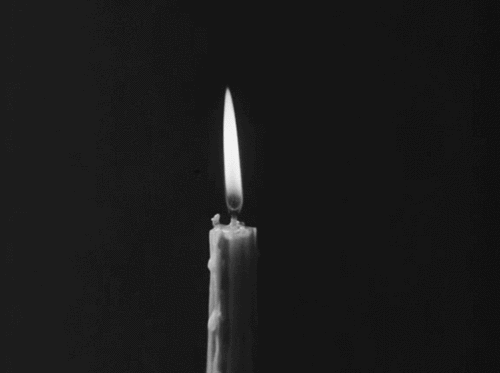
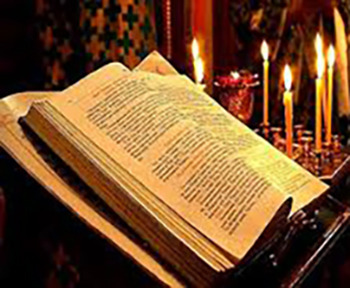
ISAIAH 1:19-2:3
19 If you are willing and obedient, You shall eat the good of the land; 20 But if you refuse and rebel, You shall be devoured by the sword”; For the mouth of the Lord has spoken. 21 How the faithful city has become a harlot! It was full of justice, Righteousness lodged in it, But now murderers. 22 Your silver has become dross, Your wine mixed with water. 23 Your princes are rebellious companions of thieves; Everyone loves bribes And follows after rewards. They do not defend the fatherless, Nor does the widow's cause come before them. 24 Therefore the Lord says, The Lord of hosts, the Mighty One of Israel, “Ah, I will rid Myself of My adversaries, And take vengeance on My enemies. 25 I will turn My hand against you, thoroughly purge away your dross, And take away all your alloy. 26 I will restore your judges and counselors as at the beginning. Afterward, you shall be called the city of righteousness, the faithful city.” 27 Zion shall be redeemed with justice And her penitents with righteousness. 28 The destruction of transgressors and of sinners shall be together, And those who forsake the Lord shall be consumed. 29 For they shall be ashamed of the terebinth trees Which you have desired; And you shall be embarrassed because of the gardens Which you have chosen. 30 For you shall be as a terebinth whose leaf fades, And as a garden with no water. 31 The strong shall be as tinder, And the work of it as a spark; Both will burn together, And no one shall quench them.
1The word that Isaiah the son of Amoz, saw concerning Judah and Jerusalem.
2 Now it shall come to pass in the latter days That the mountain of the Lord’s house Shall be established on the top of the mountains, and exalted above the hills, And all nations shall flow to it. 3 Many people shall come and say, “Come, and let us go up to the mountain of the Lord, To the house of the God of Jacob; He will teach us His ways, And we shall walk in His paths.” For out of Zion shall go forth the law And the word of the Lord from Jerusalem.
PROVERBS 1:20-33
20 Wisdom calls aloud outside; She raises her voice in the open squares. 21 She cries out in the chief concourses, At the openings of the gates in the city She speaks her words: 22 “How long, you simple ones, will you love simplicity? For scorners delight in their scorning, And fools hate knowledge. 23 Turn at my rebuke; Surely I will pour out my spirit on you and make my words known to you. 24 Because I have called and you refused, I have stretched out my hand and no one regarded, 25 Because you disdained all my counsel, And would have none of my rebuke, 26 I also will laugh at your calamity; I will mock when your terror comes, 27 When your terror comes like a storm, And your destruction comes like a whirlwind, When distress and anguish come upon you. 28 Then they will call on me, but I will not answer; They will seek me diligently but not find me. 29 Because they hated knowledge And did not choose the fear of the Lord, 30 They would have none of my counsel And despised my every rebuke. 31 Therefore they shall eat the fruit of their own way, And be filled to the full with their own fancies. 32 For the turning away of the simple will slay them, And the complacency of fools will destroy them; 33 But whoever listens to me will dwell safely, And will be secure, without fear of evil.”
#orthodoxy#orthodoxchristianity#easternorthodoxchurch#originofchristianity#spirituality#holyscriptures#bible#oldtestament
3 notes
·
View notes
Text
The kingdom of heaven is called spiritual contemplation

The kingdom of heaven is called spiritual contemplation, for this is what it is. It is not found through the activity of thought, but can be tasted by grace. Until a man cleanses himself, he is in no state even to hear of the Kingdom, for no one can acquire it through teaching, only through purity of heart. God gives pure thoughts to those who live pure lives.
--Isaac the Syrian, bishop of Nineveh
Our venerable father Isaac of Nineveh, also known as Isaac of Syria, is a 7th century saint known for his strict asceticism and ascetic writings. St. Isaac was born in the region of Qatar on the western shore of the Persian Gulf. When still quite young, he entered a monastery with his brother.
https://orthodoxwiki.org/Isaac_of_Syria
2 notes
·
View notes
Video
youtube
Abraham was a Saint and so, should be His Faithful sons, the Samaritans ... Abraham was a Saint and so, should be His Faithful sons, the Samaritans of "Salt" of the Nobel Abraham. https://youtu.be/ry8fmlNCxGQ Holy Gospel of our SUPERNATURAL FATHER of our supernatural “souls” Elohim, Allah, ParBrahm, etc., delivered by the first Anointed Christ, which in Punjabi we call Satguru Jesus of the highest living God Elohim that dwells within His most beautiful living Temple of God created by the greatest artist demiurge potter, the lord of the Nature Yahweh, Brahma, Khudah, etc. and it is called Harmandir or “Emmanuel” if you are not “greedy” according to Christ Rajinder:- The "Saltless" Jews who killed Jesus are killing the serving soldiers of Christ Jesus. Nothing strange, The Samaritans were people of the "Salt of Abraham", they hated them and so, today anyone who speaks the Gospel Truth is hated. The University Professors would throw me out of the Seminars for speaking the Gospel Truth. NOTHING STRANGE BUT AS EXPECTED OF THE "SALTLESS" PEOPLE UNFAITHFUL TO ABRAHAM AND YAHWEH, THE DEMIURGE GOD OF ABRAHAM, ISAAC AND JACOB TO WHOM THEY TOLD PACK OF LIES. For their character, they hated the Truth Speaking Joseph. They are a Nation of Priests and we should learn from their behaviour Easter Playlist:- https://studio.youtube.com/playlist/PL0C8AFaJhsWylziOpNWyWaLauSjMOeudK/edit Tase of Easter:- Reincarnation through works under Yahweh, Dharm Rai whilst Resurrection by Grace of Elohim. https://youtu.be/x3BD1z0Buq0 Allah is NOOR and you cannot apply Sharia Laws that bind you on NOOR that sets you FREE. This Islam is not of Allah called INSHALLAH but of Mullahs called Inshmullah. Our Khokhar Jatt Chaudhry Saddam Hussein Khokhar Jatt was executed by the American Jews. www.gnosticgospel.co.uk/JAntisem.htm A Jew is spiritual of heart inwardly and not in the flesh outwardly. END TIME GOSPEL TRUTH – FREE LECTURES AND SEMINARS. www.gnosticgospel.co.uk/JAntisem.htm www.gnosticgospel.co.uk/GistEndGospel.htm Other:- www.gnosticgospel.co.uk/Nobility.htm http://www.gnosticgospel.co.uk/tenlights.htm http://www.gnosticgospel.co.uk/JattIslam.htm Proofs of the Virgin Birth of Jesus: - www.gnosticgospel.co.uk/bojes.htm Put Captions:- Matt 21v33-46:- As the Jews killed the Prophets and then collected money from the devotees, so they did to Christ Jesus and created the Antichrist Pope and his killer stooges. https://youtu.be/aOH6r380ECo Super Hitler tribal Putin will destroy Blasphemer USA and the West https://youtu.be/FQ9TyEEZcDQ https://youtu.be/NIB8q3YiQZs https://youtu.be/WCjpz-_w0y0 Thus, everyone is to give his account to God and you cannot blame anyone other than yourself for not waking up to the Golden Occasion of resurrection.Grim American Jewish Reaper waving sickle to kill more in Venezuela as they did in Iraq, Libya, Syria, Ukraine, etc. www.gnosticgospel.co.uk/GrimReaper.htm Holy spirit, common sense, shatters the fetters of the dead letters, the Holy Books. If we have one God, our SUPERNATURAL FATHER of our supernatural “soul”, there should be one Faith. In Christianity, Jesus said One Fold called the Church of God headed by One Shepherd, our Elder Brother and the Bridegroom Christ Jesus/Christ = Satguru Nanak Dev Ji, the Second Coming of Jesus. Solid Proof; this Golden Temple is of the same size as the Holiest of the Holy that used to be in Jerusalem and its curtain held the secrets of the Oral Torah = His Word was rendered from the Top, the Temple High Priest, to the Bottom, the village Rabbis off you go – Luke 16v16; Law and Prophets were till John and thus, everyone makes a direct approach to God through His Word = Logo = Satgur Parsad. So, these hireling Dog-Collared Priests and Mullahs, cannot give your account to God as the Rabbis used to give at the Passover. So, they are "Antichrists" that have a following of the spiritually blind Super Bastard fanatic devils - John 8v44 - Hindu, Jew, Sikh, Christian, Muslim, etc. outwardly of appearances, and not spiritually inwardly. These spiritual selves Hindu, Jew and Christian, are never born like Christ, the title and they never die but the tribal selves Judah, Levi, Jatt, Tarkhan, etc. were born and they will die. Thus, Jesus was born and Jesus died on the cross and rose on the Third Day and not Christ, the title. Allah is NOOR and you cannot apply Sharia Laws that bind you on NOOR that sets you FREE. This Islam is not of Allah called INSHALLAH but of Mullahs called Inshmullah. Our Khokhar Jatt Chaudhry Saddam Hussein Khokhar Jatt was executed by the American Jews. For the unlisted videos:- www.gnosticgospel.co.uk/Unlisted.htm My ebook by Kindle. ASIN: B01AVLC9WO Private Bitter Gospel Truth videos:- www.gnosticgospel.co.uk/JAntisem.htm www.gnosticgospel.co.uk/JOHN 8V44.htm www.gnosticgospel.co.uk/Rest.htm My Books:- ONE GOD ONE FAITH:- www.gnosticgospel.co.uk/bookfin.pdf Very informative Channel:- Punjab Siyan. John's baptism:- www.gnosticgospel.co.uk/johnsig.pdf Trinity:- www.gnosticgospel.co.uk/trinity.pdf
0 notes
Quote
Rejoice with the joyous and weep with those who weep; for this is the sign of limpid purity. Suffer with those who are ill and mourn with sinners; with those who repent, rejoice. Be a partaker in the sufferings of all men. Rebuke no one, revile no one, not even men who live very wickedly.
Spread your cloak over the man who is falling; cover him.
Saint Isaac of Syria, Ascetical Homilies
1 note
·
View note
Photo

He who is master of possessions, is the slave of passions. Do not estimate gold and silver only as possessions, but all things thou possess for the sake of the desire of thy will.
+ St. Isaac the Syrian, “Six Treatise on the Behavior of Excellence,” IV, Mystic Treatises By Isaac Of Nineveh
#Eastern Orthodoxy#eastern orthodox#roman catholic#catholic#orthodox#Saint Isaac The Syrian#saint isaac of syria
7 notes
·
View notes
Quote
It is impossible to draw near to God without sorrows, without which human righteousness cannot remain unchanged… If you desire virtue, then give yourself to every affliction, for afflictions produce humility. If someone abides in virtue without afflictions, the door of pride is opened to him.
St. Isaac The Syrian
#St Isaac of Syria#st isaac the syrian#saint#saint quote#saint quotes#catholic saint#st isaac the syrian quotes#st isaac of syria quotes#catholic#catholic quotes#catholic quote#catholicism#being catholic#roman catholic#catholic church#the catholic church#quote#quotes
52 notes
·
View notes
Text

13 notes
·
View notes
Photo

Saint Isaac the Syrian
c. 613 - c. 700
Feast Day: January 28
Saint Isaac of Syria, also known as Isaac of Nineveh entered a monastery at a young age and received an excellent education. He then taught theology while emphasizing God’s love, mercy, and the works of the Holy Spirit. St. Isaac was installed as the Bishop of Ninevah but left after 5 months to live a life of solitude, poverty, contemplation, and total surrender to God. His writings are still treasured today for their spiritual insights.
{website}
35 notes
·
View notes
Note
hey! I was wondering if you had any reading recommendations for someone who’s new to Orthodoxy? thank you 💛
The Bible? I’m joking, kind of; some people have said that reading the Bible is what made them an atheist, weirdly enough I credit an atheist reading the Bible with renewing my faith but I digress. I think it really depends on how new you are to religion, Christianity or Orthodoxy but here are some of my favorites, most if not all exist in physical form but links provided to eBooks/online when I can find them!
A forewarning, my definition of “beginner” might be a bit broad so I’ll BOLD the ones I think are very easy and the rest are...probably not for beginners but I still would recommend to everyone.
The Orthodox Way by Kallistos Ware (this one is praised a lot on Orthodox Reddit for bringing beginners into the fold; it’s a great starting point)
Introducing Eastern Orthodox Theology by Andrew Louth
Orthodox Prayer Book (just good to know prayers!)
The Orthodox Study Bible (a book not written fully by Orthodox, more written for people trying to get into Orthodoxy. Not bolded because it IS the Bible; it’s got lots of little notes and essays but it’s only really good for beginners, I grew past it pretty fast, so it has to go here!)
Pearl of Great Price by Sergei Hackel (NOT the book by the LDS church, this is a different one)
The Writings of Mother Maria Skobtsova
Everyday Saints and Other Stories by Archimandrite Tikhon
On Acquisition of the Holy Spirit by St. Seraphim of Sarov
The Philokalia (very difficult but foundational)
The Longer Catechism of The Orthodox, Catholic, Eastern Church
The Art of Salvation by Elder Ephraim
The Triads by Gregory Palamas (We learned a little about Palamas today in catechism, he’s a very important thinker)
The Spiritual World Of Isaac The Syrian (I very much adore the writings of St. Isaac of Syria so if you can, check him out).
I wish I had some “modern” books, with theology I tend to look towards the Church Father’s first meaning I end up reading a lot of theology written by monks in the 1300s.
Honestly if anyone else has some recommendations for anon or me I’d love to hear them!
Also sorry for the late reply. When I started typing this it was asked seven hours ago but then I had to stop to cook dinner, then eat and etc. so it has been a all day thing apparently. I hope that helps!
58 notes
·
View notes
Photo
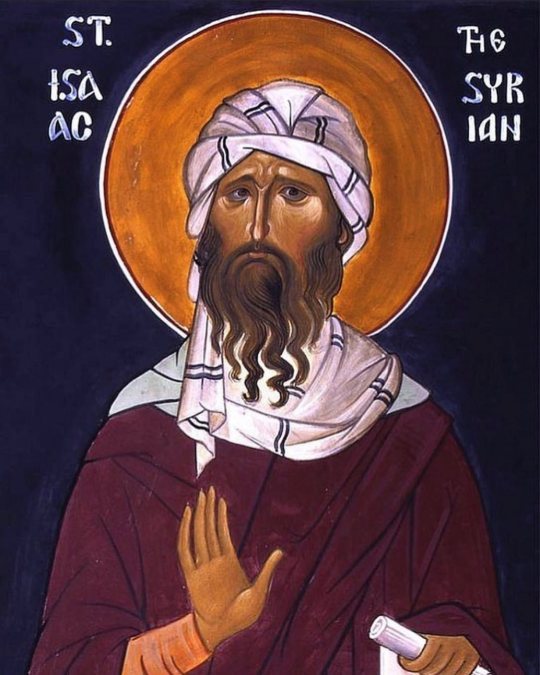
Today we also celebrate the Venerable Isaac the Syrian. Saint Isaac, Bishop of Ninevah, lived during the sixth century. He and his brother entered the monastery of Mar Matthew near Ninevah and received the monastic tonsure. His learning, virtue, and ascetic manner of life attracted the notice of the brethren, and they proposed that he head the monastery. Saint Issac did not want this burden, preferring a life of silence, so he left the monastery to live alone in the desert. His brother urged him more than once to return to the monastery, but he would not agree. However, when the fame of Saint Isaac’s holy life had spread, he was made Bishop of Ninevah. Seeing the crude manners and disobedience of the inhabitants of the city, the saint felt that it was beyond his ability to guide them, and moreover, he yearned for solitude. Once, two Christians came to him, asking him to settle a dispute. One man acknowledged that he owed money to the other, but asked for a short extension. The lender threatened to bring his debtor to court to force him to pay. Saint Isaac, citing the Gospel, asked him to be merciful and give the debtor more time to pay. The man said, “Leave your Gospel out of this!” Saint Isaac replied, “If you will not submit to Lord’s commandments in the Gospel, then what remains for me to do here?” After only five months as bishop, Saint Isaac resigned his office and went into the mountains to live with the hermits. Later, he went to the monastery of Rabban Shabur, where he lived until his death, attaining a high degree of spiritual perfection. From the early eighth century until the beginning of the eighteenth century, nothing was known about Saint Isaac of Syria in Europe except for his name and works. Only in 1719 was a biography of the saint published at Rome, compiled by an anonymous Arab author. In 1896, more information on Saint Isaac came to light. The learned French soteriologist Abbot Chabot published some eighth century works on Syrian history by Iezudena, bishop of Barsa, where the account of Saint Isaac the Syrian was found. May he intercede for us always + Source: https://www.oca.org/saints/lives/2019/01/28/100333-saint-isaac-the-syrian-bis (at Mosul, Iraq) https://www.instagram.com/p/CUWZCHsIbP6/?utm_medium=tumblr
23 notes
·
View notes
Text
Saints&Reading: Monday, February 27, 2023
february 27_february 14
Great Lent. By Monastic Charter - Full abstention from food
Clean Monday
VENERABLE AUXENTIUS (470)
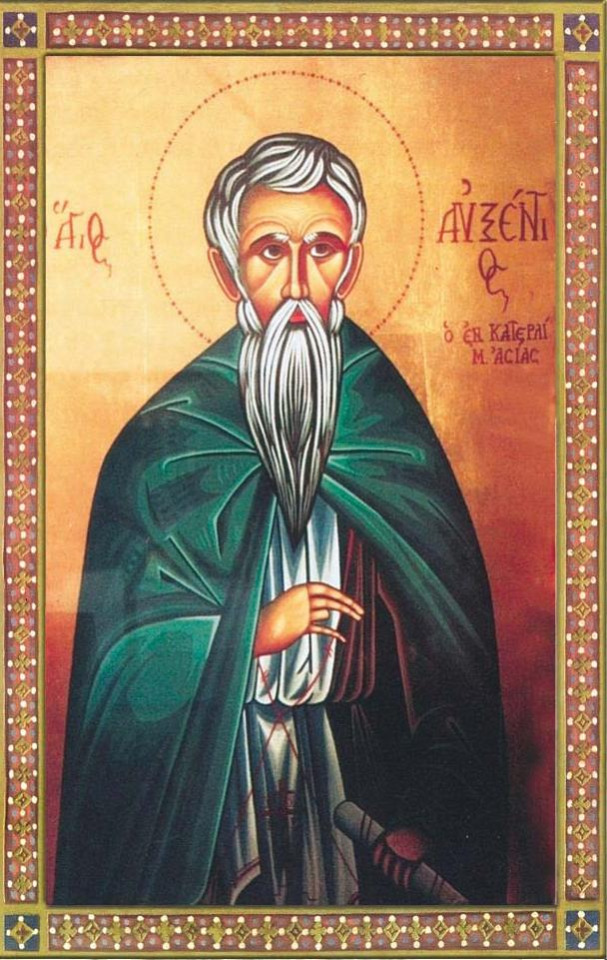
Saint Auxentius, by origin a Syrian, served at the court of the emperor Theodosius the Younger (418-450). He was known as a virtuous, learned, and wise man, and he was, moreover, a friend of many of the pious men of his era.
Distressed by worldly vanity, Saint Auxentius was ordained to the holy priesthood and received monastic tonsure. After this, he went to Bithynia and found a solitary place on Mount Oxia, not far from Chalcedon, and there he began the life of a hermit (this mountain was afterward called Mt. Auxentius). Shepherds seeking their lost sheep discovered the place of the saint’s efforts. They told others about him, and people began to come to him for healing. Saint Auxentius healed many of the sick and the infirm in the name of the Lord.
In the year 451 Saint Auxentius was invited to the Fourth Ecumenical Council at Chalcedon, where he denounced the Eutychian and Nestorian heresies. Familiar with Holy Scripture and learned in theology, Saint Auxentius easily bested those opponents who disputed with him. After the end of the Council, Saint Auxentius returned to his solitary cell on the mountain. With his spiritual sight he saw the repose of Saint Simeon the Stylite (459) from a great distance.
Saint Auxentius died about the year 470, leaving behind him disciples and many monasteries in the region of Bithynia. He was buried in the Monastery of Saint Hypatius at Rufiananas, Syria.
VENERABLE ISAAC RECLUSE OF THE KIEV CAVE (1090)
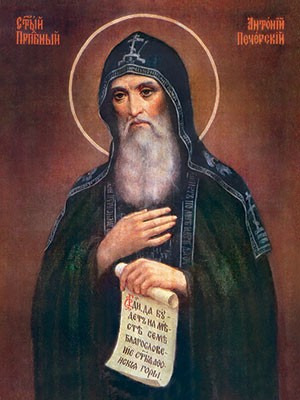
Saint Isaac was the first person in northern lands to live as a fool for Christ. His name in the world was Chern. Before becoming a monk, he was a rich merchant in the city of Toropets in the Pskov lands. Having distributed all his substance to the poor, he went to Kiev and received the monastic tonsure from Saint Anthony (July 10).
He led a rigorous life of reclusion, eating only a single prosphora and a little water at the end of the day. After seven years as a hermit, the devil subjected him to fierce temptation. Having mistaken the Evil One for Christ, he worshipped him, after which he fell terribly crippled. Saints Anthony and Theodosius took care of him and nursed him. Only after three years did he begin to walk and speak. He did not wish to attend church but was brought there by force.
Upon his return to health, he took upon himself the exploit of holy foolishness, enduring beatings, nakedness, and cold. Before his death, he went into seclusion, where again he was subjected to an onslaught of demons, from which he was delivered by the Sign of the Cross and prayer.
After his healing, he spent about twenty years in asceticism. He died in the year 1090. His relics rest in the Caves of Saint Anthony, and part of them was transferred to Toropets by the igumen of the Kudin monastery in 1711. The Life of the Blessed Isaac was recorded by Saint Nestor in the Chronicles (under the year 1074). The account in the Kiev Caves Paterikon differs somewhat from that of Saint Nestor. In the Great Reading Menaion under April 27 is the “Account of Saint Isaac and his Deception by the Devil.”
Source, all texts: Orthodox Church in America_OCA
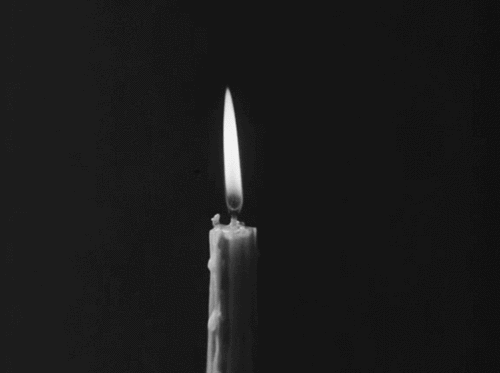

ISAIAH 1:1-20
1The vision of Isaiah the son of Amoz, which he saw concerning Judah and Jerusalem in the days of Uzziah, Jotham, Ahaz, and Hezekiah, kings of Judah. 2 Hear, O heavens, and give ear, O earth! For the Lord has spoken: “I have nourished and brought up children, And they have rebelled against Me; 3 The ox knows its owner And the donkey its master’s crib; But Israel does not know, My people do not consider.”4 Alas, sinful nation, A people laden with iniquity, A brood of evildoers, Children who are corrupters! They have forsaken the Lord, They have provoked to anger The Holy One of Israel, They have turned away backward. 5 Why should you be stricken again? You will revolt more and more. The whole head is sick, And the whole heart faints. 6 From the sole of the foot even to the head, There is no soundness in it, But wounds and bruises and putrefying sores; They have not been closed or bound up, Or soothed with ointment. 7 Your country is desolate, Your cities are burned with fire; Strangers devour your land in your presence; And it is desolate, as overthrown by strangers. 8 So the daughter of Zion is left as a booth in a vineyard, As a hut in a garden of cucumbers, As a besieged city. 9 Unless the Lord of hosts Had left to us a very small remnant, We would have become like Sodom, We would have been made like Gomorrah. 10 Hear the word of the Lord, You rulers of Sodom; Give ear to the law of our God, You people of Gomorrah: 11 “To what purpose is the multitude of your sacrifices to Me?” Says the Lord. “I have had enough of burnt offerings of rams And the fat of fed cattle. I do not delight in the blood of bulls, Or of lambs or goats. 12 “When you come to appear before Me, Who has required this from your hand, To trample My courts? 13 Bring no more futile sacrifices; Incense is an abomination to Me. The New Moons, the Sabbaths, and the calling of assemblies— I cannot endure iniquity and the sacred meeting. 14 Your New Moons and your appointed feasts My soul hates; They are a trouble to Me, I am weary of bearing them. 15 When you spread out your hands, I will hide My eyes from you; Even though you make many prayers, I will not hear. Your hands are full of blood. 16 “Wash yourselves, make yourselves clean; Put away the evil of your doings from before My eyes. Cease to do evil, 17 Learn to do good; Seek justice, Rebuke the oppressor; Defend the fatherless, Plead for the widow. 18 “Come now, and let us reason together,” Says the Lord, “Though your sins are like scarlet, They shall be as white as snow; Though they are red like crimson, They shall be as wool. 19 If you are willing and obedient, You shall eat the good of the land; 20 But if you refuse and rebel, You shall be devoured by the sword”; For the mouth of the Lord has spoken.
GENESIS 1:1-13
1 In the beginning God created the heavens and the earth. 2 The earth was without form, and void; and darkness was on the face of the deep. And the Spirit of God was hovering over the face of the waters. 3 Then God said, “Let there be light”; and there was light. 4 And God saw the light, that it was good; and God divided the light from the darkness. 5 God called the light Day, and the darkness He called Night. So the evening and the morning were the first day. 6 Then God said, “Let there be a firmament in the midst of the waters, and let it divide the waters from the waters.” 7 Thus God made the firmament, and divided the waters which were under the firmament from the waters which were above the firmament; and it was so. 8 And God called the firmament Heaven. So the evening and the morning were the second day. 9 Then God said, “Let the waters under the heavens be gathered together into one place, and let the dry land appear”; and it was so. 10 And God called the dry land Earth, and the gathering together of the waters He called Seas. And God saw that it was good. 11 Then God said, “Let the earth bring forth grass, the herb that yields seed, and the fruit tree that yields fruit according to its kind, whose seed is in itself, on the earth”; and it was so. 12 And the earth brought forth grass, the herb that yields seed according to its kind, and the tree that yields fruit, whose seed is in itself according to its kind. And God saw that it was good. 13 So the evening and the morning were the third day.
#orthodoxy#ortodoxchristianity#easternorthodoxchurch#originofchristianity#spirituality#holyscriptures bible
1 note
·
View note
Text

Do not fall into despair because of your stumblings. I do not mean that you should not feel pain because of them, but that you should not consider them incurable. For it is better to be wounded than to be dead. There is indeed a healer: he who on the cross asked for mercy on those who were crucifying him, who pardoned murderers as he hung on the cross. Christ came on behalf of sinners, to heal the broken-hearted and to bind up their wounds.
Saint Isaac of Syria
14 notes
·
View notes